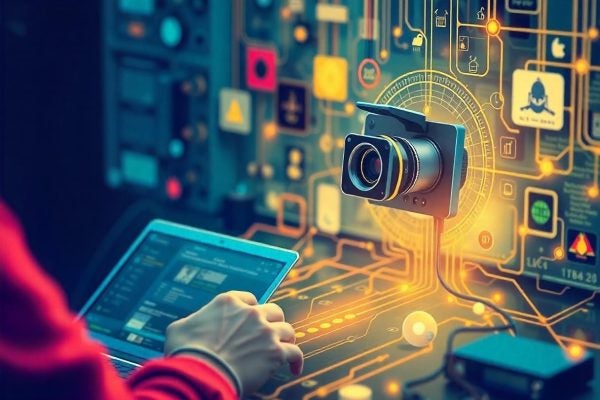Filtered by: News Media
AutoCodeRover, an autonomous AI agent platform for software development which is a spin-off technology of the National University of Singapore (NUS), has been acquired by Sonar, a global leader in code quality and code security solutions. This innovative technology was developed by Professor Abhik Roychoudhury and his team from NUS School of Computing (NUS Computing).
The acquisition highlights the real-world impact of NUS’ research with the innovative platform boosting Sonar’s AI-agent-based code development, driving innovation in software engineering and agentic AI. This exciting partnership will also create new research and development (R&D) jobs in Singapore.
NUS Presidential Young Professor Kenji Kawaguchi, from the Department of Computer Science at NUS School of Computing (NUS Computing), has won the Best Paper Award at the prestigious NeurIPS 2024 conference. Held from 10 to 15 December 2024, the event featured global experts in artificial intelligence (AI) and machine learning, with the Best Paper Award being a hallmark of excellence for highly impactful papers from leading researchers who are making exceptional contributions to the field of Machine Learning.
Prof Kawaguchi’s paper titled “Stochastic Taylor Derivative Estimator: Efficient Amortization for Arbitrary Differential Operators” (STDE) co-authored with Dr Min Lin (Head of Research at the Sea AI Lab), Mr Zekun Shi (PhD student at NUS Computing), and Mr Zheyuan Hu (PhD student at NUS Computing) addresses a critical challenge in AI and computational mathematics — efficient computation of derivatives for complex systems. The team’s innovative STDE introduces a scalable, efficient, and highly parallisable method to solve high-dimensional problems, significantly reducing computational demand while improving accuracy. In a demonstration of its prowess, the team solved a million-dimensional problem in just eight minutes on a single GPU, a task that would have taken traditional methods weeks.
Prof Kawaguchi and his team’s work on STDE holds vast potential for real-world applications, including simulating entire galaxies, engineering smarter devices, advancing renewable energy, transforming healthcare, revolutionising finance, and accelerating drug discovery.
This accolade marks a proud and significant milestone for NUS Computing, highlighting the School’s leadership in driving impactful and innovative advancements in AI research.
Related News Coverage:
The Laotian Times, 15 Jan 2025
https://laotiantimes.com/2025/01/15/unlocking-the-power-of-high-dimensional-simulations-with-stde
The Manila Times, 15 Jan 2025
https://www.manilatimes.net/2025/01/15/tmt-newswire/pr-newswire/unlocking-the-power-of-high-dimensional-simulations-with-stde/2039036
Thailand Business News, 15 Jan 2025
https://www.thailand-business-news.com/pr-news/unlocking-the-power-of-high-dimensional-simulations-with-stde
S$50m gift from Sea Limited to NUS School of Computing strengthens the University’s commitment to advancing research and developing talent in computing
Innovations in artificial intelligence (AI) and computing at the National University of Singapore (NUS) get a major boost with today's official opening of two state-of-the-art buildings, Sea Building and Sea Connect. Together, the two new buildings provide dynamic and versatile spaces, spanning a total area of 21,570 sqm, to drive NUS’ bold ambitions in cutting-edge research, education, and collaboration, advancing the rapidly evolving fields in computing such as AI and data science.
The naming of the buildings is in honour of the generous S$50 million gift from Sea Limited (Sea) in 2021. The donation, the largest corporate gift received by the NUS School of Computing (NUS Computing) to date, is used to fund scholarships, fellowships, and grants that will enhance the School’s ability to attract talent and pursue advanced research.
Mr Chan Chun Sing, Minister for Education, attended the official opening of Sea Building and Sea Connect as the Guest-of-Honour, together with Professor Tan Eng Chye, NUS President, and Mr Forrest Li, Chairman and CEO, Sea.
Related News Coverage:
Straits Times, 21 January 2025 - NUS Computing expands with new AI degrees, facilities
The New Paper, 21 January 2025 -NUS Computing expands with new AI degrees, facilities
Lianhe Zaobao, 21 January 2025 - 国大两新教学楼揭幕 将新设人工智能学位课程
Lianhe Zaoba0, 21 January 2025 - 国大两新教学楼揭幕 将开办人工智能学位课程
Tamil Murasu, 21 January 2025 -என்யுஎஸ் வழங்கும் புதிய செயற்கை நுண்ணறிவு பட்டக்கல்விப் பாடங்கள்
OpenGov Asia, 22 January 2025 - New NUS Facilities Empower AI Innovation and Research
As companies around the world continue to explore artificial intelligence (AI) solutions, organisations often face several hurdles in successfully adopting AI technologies.
Professor Anthony Tung, AI Lead for Urban Sustainability at the NUS AI Institute in Singapore, and a faculty member in the Department of Computer Science at NUS School of Computing in an exclusive interview with iTnews Asia said these challenges stem from factors such as a lack of AI understanding, limited talent, data constraints, and insufficient computational resources.
Associate Professor Brian Lim from the NUS School of Computing, who led the development of algorithms used to process data collected by Tetris, said: “This creates a chain of interactions that we can subsequently read and decode via algorithms.”
NUS Computing has introduced new courses in AI-related areas, and is also looking into updating the syllabus of existing courses. This is in addition to seeing greater interest for programmes such as artificial intelligence, computing, computer engineering, as well as data science and analytics.
Professor Anthony Tung shares about Dark AI and Cybersecurity issues on 8world Click IT.
While palm scans may seem straightforward, there are actually three distinct ways our hands can provide data - palm veins, prints, and geometry - according to Associate Professor Terence Sim, who also serves as the Vice Dean of NUS Office of Admissions. Dr Sim explained that veins, or "vascular biometrics" in technical terms, are highly accurate and difficult to spoof. "It can distinguish between identical twins, which would fool most facial recognition systems," he said. He added that acquiring a palm vein image is also contactless, making it "more hygienic compared to contact-based biometrics like fingerprints." He noted that "contactless means you don't have to clean the surface as often." However, Dr Sim cautioned that one downside of scanning vein information is that "it reveals medical conditions, such as oxygenation levels, pregnancy, and stress levels”.
国大今年新设立“杰出研究生导师奖”,首届得主是计算机学院计算机科学系的阿比克·莱卓胡里(Abhik Roychoudhury) 教授。他一直希望给予学生发掘新研究思路的智力空间,引导他们、同他们讨论,并鼓励他们拓展想象力。莱卓胡里的桃李们,如今有的加入顶尖学府,有的是成功公司的创始人。他说:“奖项是对这一教学理念的积极鼓励,同时也是对我那些学生们杰出优秀的认可。”
Green computing and artificial intelligence (AI) safety will be among the focus areas of a new AI research and innovation centre, which is expected to be set up at the NUS School of Computing by 2025.
The proposed centre, a collaboration between IBM and the National University of Singapore (NUS), aims to accelerate scientific research here by tapping the American tech giant’s full-stack AI infrastructure.
Despite the global rise in ransomware attacks, “the increase is not at an alarming rate”, Associate Professor Liang Zhenkai from the National University of Singapore’s department of computer science told CNA. “Ransomware has been around for many years, with a big surge during the COVID-19 pandemic due to the large-scale work from home arrangement,” he explained. He urged firms to remain vigilant, including by having good data backup and recovery as well as cyber hygiene processes. These include not downloading and running programmes from unknown sources, and not using accounts with administrator privileges for day-to-day tasks.
"Computer science is not just about AI," said Kan Min Yen, an associate professor of computer science at the National University of Singapore.
"Proper development and use of AI still require fundamental knowledge of software engineering, data management, and security, all tenets of a holistic computing education," he added.
While some may think that tools like GitHub Copilot will render them obsolete, Kan said such concerns may be overblown.
Software professionals, he said, could still add value by understanding the limitations of AI tools and how to troubleshoot them.
"You would go to a mechanic to fix a car and to someone who knows the math and training methods for large language modules to fix and diagnose problems with LLMs, such as ChatGPT," Kan explained.
Dr Sanka Rasnayaka, a lecturer from the department of computer science at the National University of Singapore’s School of Computing, cautioned against giving biometric data to private entities.
He noted that governments are held to higher standards in safeguarding biometric data and maintaining transparency about its use.
Dr Rasnayaka, who researches biometrics and artificial intelligence, said biometrics can be misused for identity theft, surveillance and discrimination, as it reveals information such as a person’s age, race, gender and even certain medical conditions.
In a data leak or breach involving personal biometric data, the effects might be irreversible if bad actors get their hands on the information.
“Criminals could use stolen biometric data to impersonate victims on platforms that rely on biometric identity, such as banks and government services,” he said. “Biometric data cannot be changed, making any breach potentially lifelong.”
Professor Jungpil Hahn works for the Department of Information Systems and Analytics at the School of Computing, National University of Singapore (NUS). The Professor is an advocate for using AI responsibly.
“AI developers and business leaders should consider all relevant ethical considerations not only in order to be compliant with regulations but also for engendering trust from its consumers and users.”
“The primary challenge in applying AI ethical principles is that much of the discourse surrounding AI ethics and governance is too broad in the sense that the conversation surrounding it is at a very high level,” Professor Hahn said.
“How to actually operationalise and put it into action is still quite underdeveloped, and vague.”
The rapid uptake and widespread use of generative AI systems has put a spotlight on AI ethics and governance. The ‘lack of clear and explicit’ standards led Professor Hahn and colleagues to study the evolution of AI Governance.
“The “black box” nature of AI models, which makes it impossible to fully (exhaustively) know how it will perform/behave.” Professor Hahn added.
Professor Anthony Tung explores the topic of deepfake scams, their prevalence and how ordinary people can identify and prevent themselves from being deceived by them.
Associate Professor Terence Sim of the National University of Singapore’s Centre for Trusted Internet and Community said AI-generated porn is “certainly a very pressing issue”.
The National University of Singapore School of Computing (NUS Computing) has unveiled a new Computing Gallery, the first of its kind in Southeast Asia, which documents the nation’s computing education journey at Singapore’s flagship university, among other aspects of Information Technology (IT).
“It’s a difficult balancing act,” says Ooi Wei Tsang, an associate professor in the School of Computing at the National University of Singapore. “Given that large language models are evolving rapidly, we are still learning how to do this.”
Professor Anthony Tung discusses the impact of Open AI Sora on various industries on Hello Singapore.
Launched on March 25, the NUS AI Institute (NAII) will conduct research on how to address the ethical concerns and risks associated with AI and to apply AI across various domains such as education, healthcare, finance and sustainability.
The Straits Times, 25 March 2024
-
Computing 1
13 Computing Drive
Singapore 117417
© National University of Singapore. All Rights Reserved. • Legal • Branding guidelines





